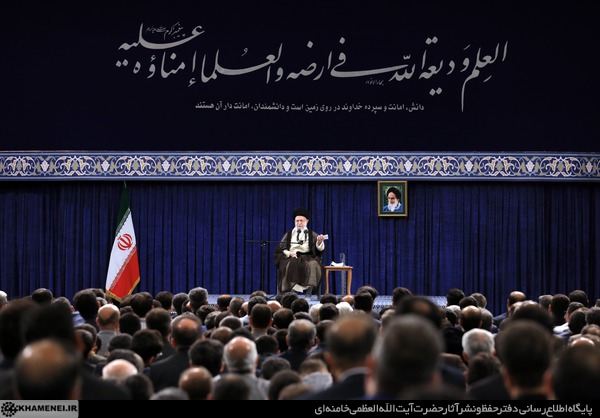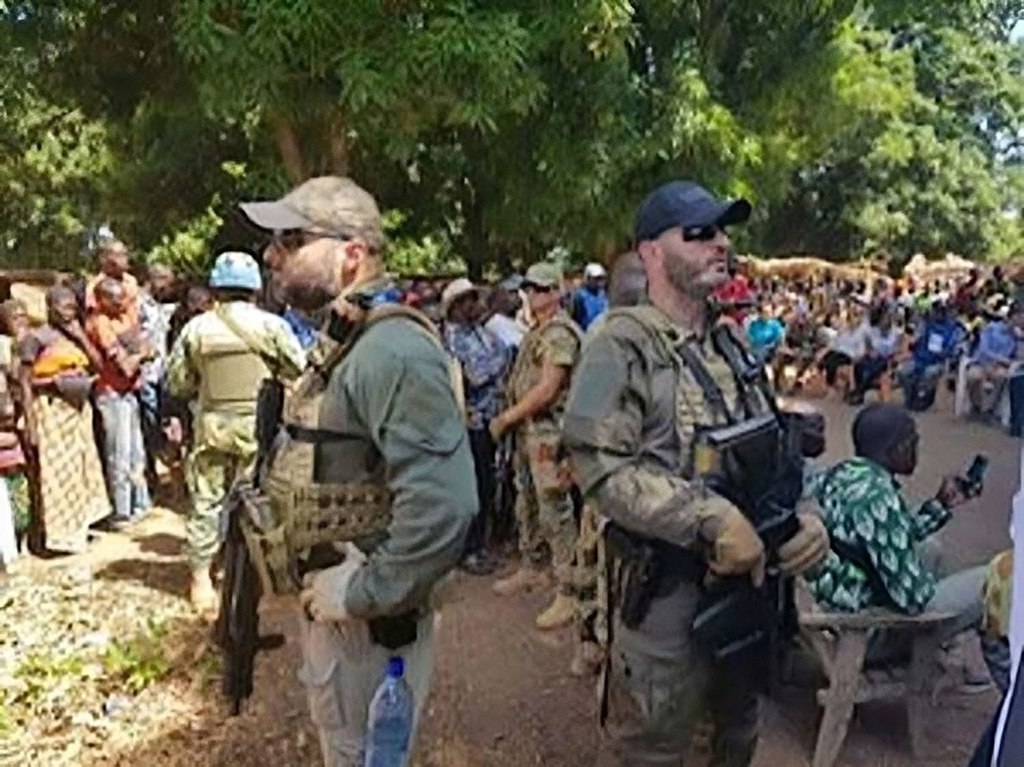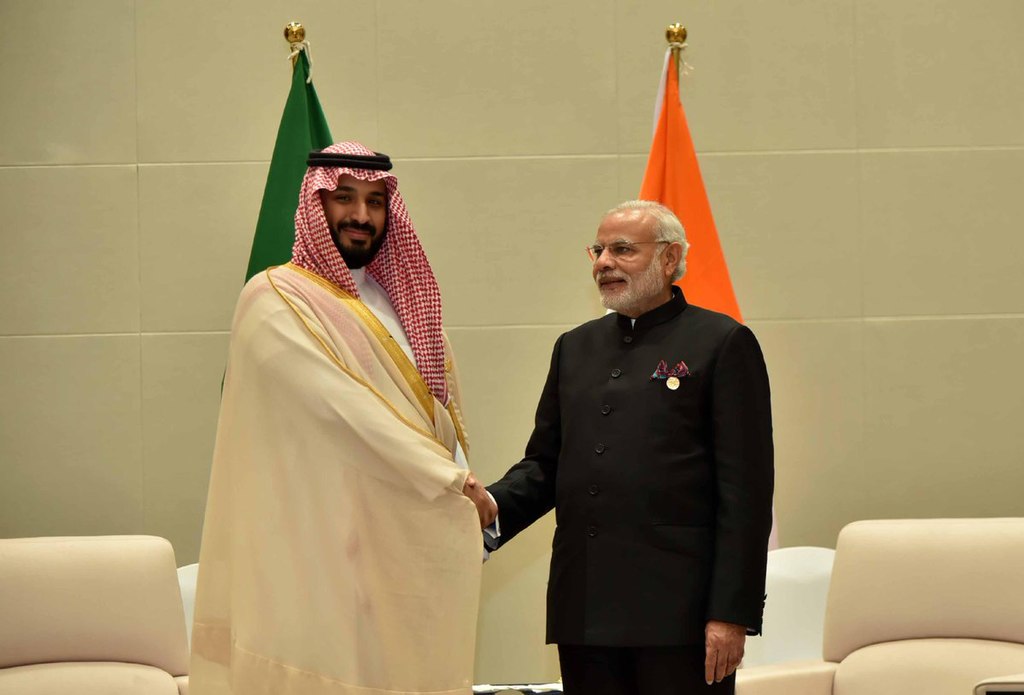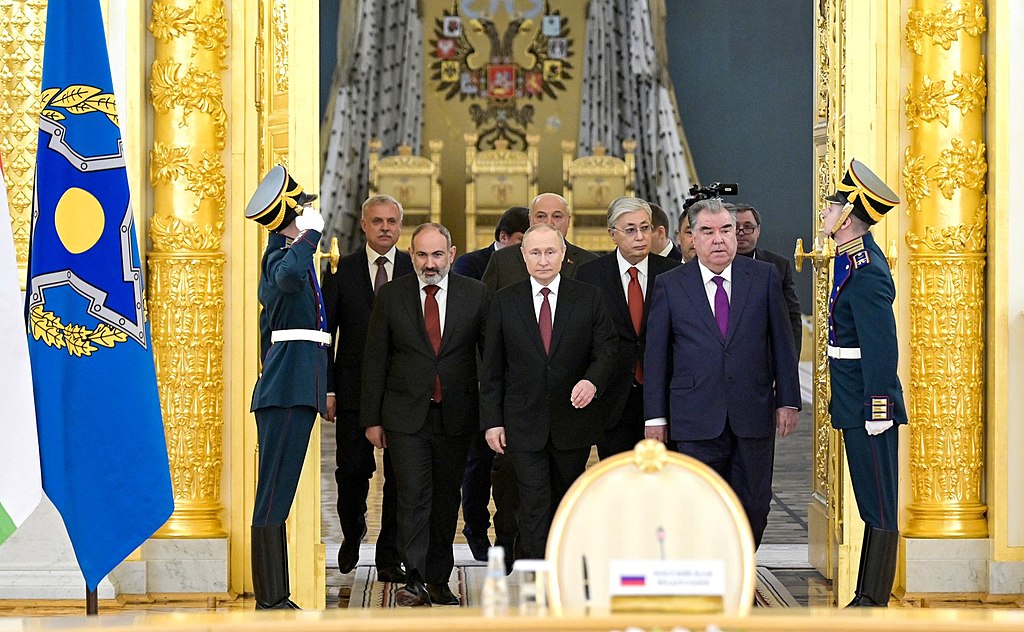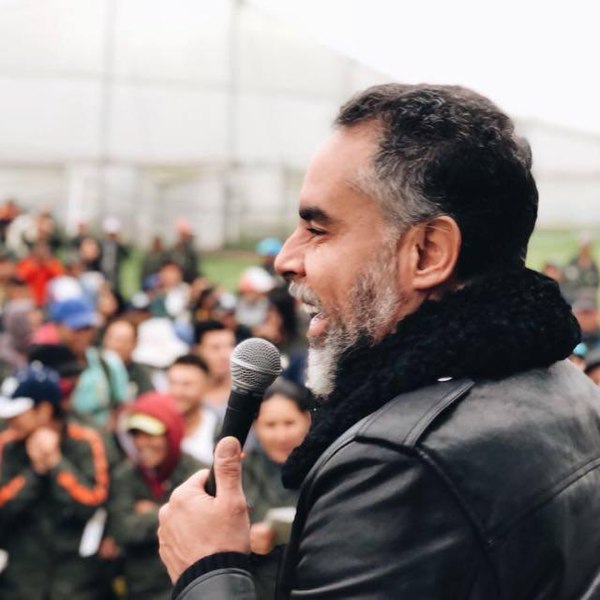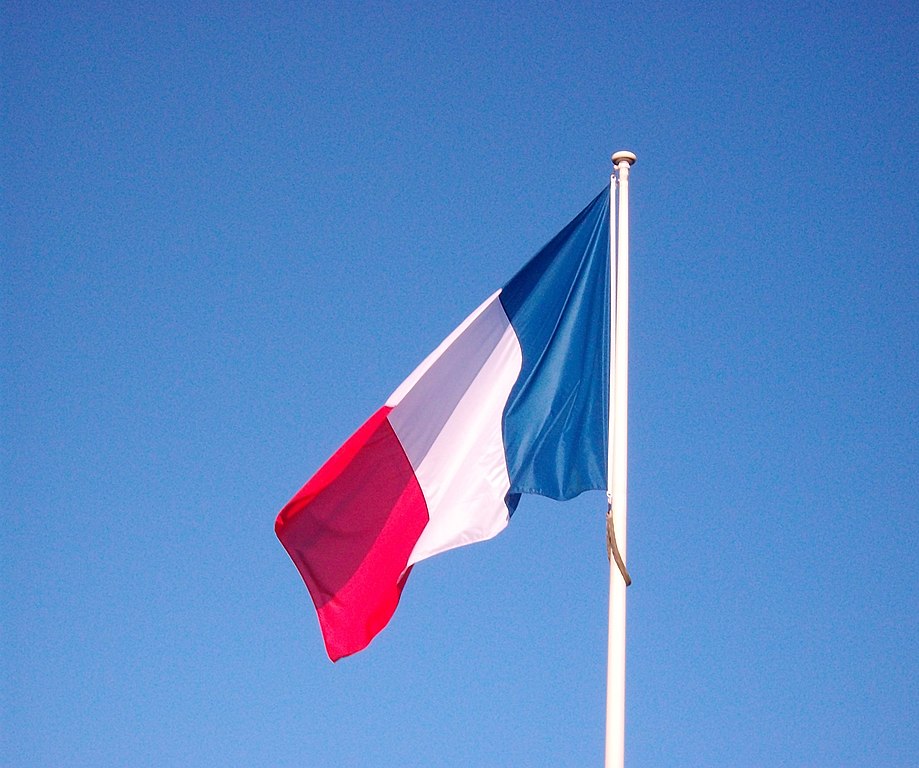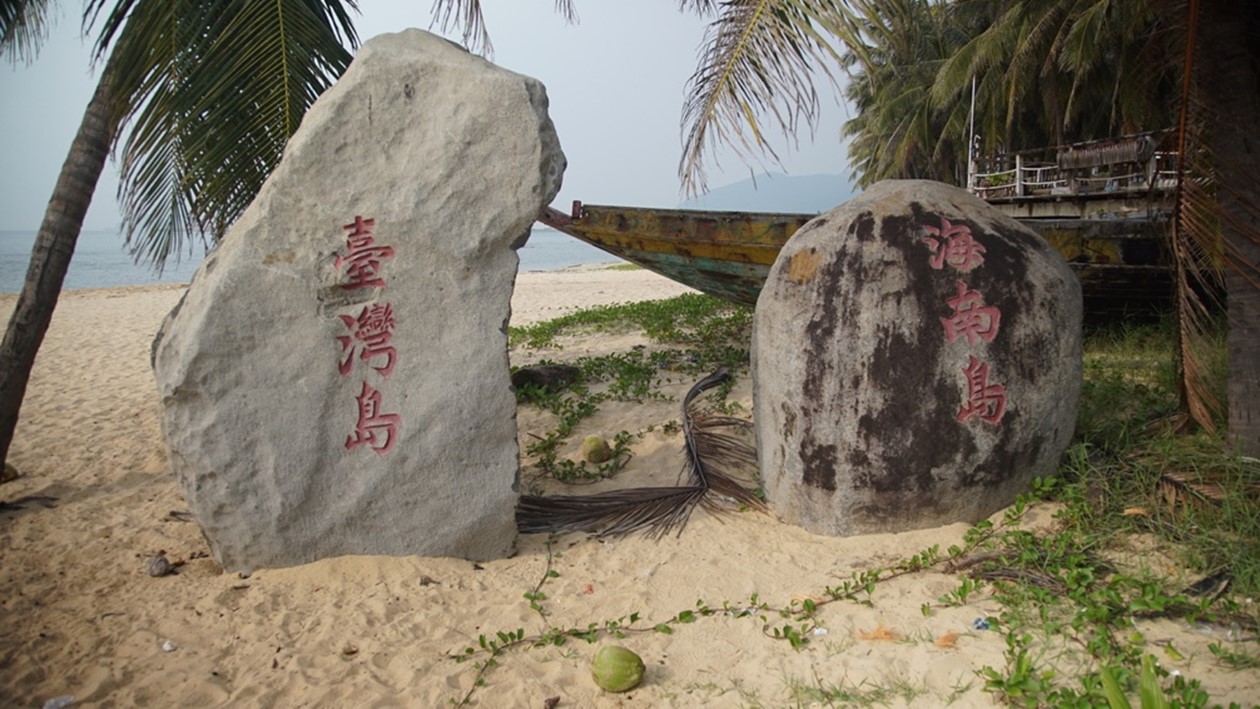
Monument of Recognition of Taiwan on Hainan Island, (Tai Wan Dao – Taiwan Island)
“[Chinese Foreign Minister] Qin Gang pointed out that the Taiwan issue is the core of China’s core interests, the most important issue in Sino-US relations, and the most prominent risk.”
Taiwan is a “core interest”[i] of China’s. As such, recent military operations by the United States and other Western powers near Taiwan have elicited a strong Chinese response. On 26 May 2023, a Chinese J-16 [RG1] fighter aircraft intercepted an RC-135 American reconnaissance aircraft in the skies above a Chinese naval exercise featuring the Chinese aircraft carrier Shandong. On 3 June, a Chinese naval ship intercepted and cut off the U.S. guided-missile destroyer USS Chung-Hoon while it transited the Taiwan Strait with the Canadian frigate HMCS Montréal.
According to the Global Times, a subsidiary of China’s flagship People’s Daily, a spokesperson at the People’s Liberation Army (PLA) Eastern Theater Command stated that the PLA Navy “tracked and monitored them [USS Chung-Hoon and HMCS Montréal] through the whole course, and handled the situation in accordance with law and regulations.” . This was almost identical to a statement by the PLA Southern Theater Command, which a week earlier claimed that aerial forces were organized to “track and monitor it [the RC-135] through its entire course, with maneuvers in a professional manner and in accordance with law and regulations.”[ii] Chinese Foreign Minister Qin Gang clarified China’s position on Taiwan to U.S. Secretary of State Antony Blinken while the two met in Beijing two weeks later, according to a statement published on the Chinese Ministry of Foreign Affairs website. Qin told Blinken that, “Taiwan is the core of China’s core interests” China’s recent military actions have been bolder towards both Taiwan and U.S. naval and aircraft operating in the region. Repeated aggressive responses to what China considers provocations, while not necessarily a trend, illustrate its willingness to engage in brinkmanship regarding Taiwan, perhaps to persuade Western powers to rethink military and political support for the island.[iii]
Sources:
Liu Xuanzun, “PLA handles US, Canadian warships in provocative Taiwan Straits transit amid Shangri-La Dialogue, forcing US vessel to alter course,” Global Times (Chinese daily under the auspices of the Chinese Communist Party’s flagship newspaper, the People’s Daily). 4 June 2023. https://www.globaltimes.cn/page/202306/1291897.shtml
The Chinese People’s Liberation Army (PLA) handled a provocative transit in the Taiwan Straits made by US and Canadian warships on Saturday, with a Chinese destroyer reportedly forcing the US vessel to alter course by cutting in front of it, showing determination and capability in countering the provocation, experts said on Sunday.
Coming against the background of the US failing to arrange a meeting between Chinese and US defense chiefs during the ongoing Shangri-La Dialogue in Singapore amid rising tensions, the latest Taiwan Straits transit, led by the US, again showed the US’ lack of sincerity, analysts said.
The US Navy Arleigh Burke-class guided missile destroyer USS Chung-Hoonand the Canadian Navy Halifax-class frigate HMCS Montréal made a transit through the Taiwan Straits on Saturday, and the PLA Eastern Theater Command organized naval and aerial forces, tracked and monitored them through the whole course, and handled the situation in accordance with law and regulations, Senior Colonel Shi Yi, a spokesperson at the PLA Eastern Theater Command, said in a statement late on Saturday.
Shi’s statement came after the US and Canada hyped their warships’ transit through the Taiwan Straits, including Canadian news outlet Global News releasing a video on Saturday, which showed a PLA Navy Type 052D destroyer picking up speed and cutting in front of the bow of the USS Chung-Hoon from left to right, forcing the US warship to alter course and slow down to avoid a crash as the two vessels were reportedly within 150 yards (137 meters.)
The maneuvers in the Taiwan Straits share resemblances to another recent incident in which a PLA Air Force J-16 fighter jet intercepted a US RC-135 reconnaissance plane when the latter attempted to spy on the PLA Navy Shandong aircraft carrier group’s routine training in the South China Sea on May 26, a Chinese military expert who requested anonymity told the Global Times on Sunday.
Both incidents were caused by US provocations in sensitive regions on China’s doorsteps, followed by US failure to listen to Chinese radio warnings, led to professional PLA tactical maneuvers, which were then hyped by Western media attempting to shift blame to China, hype “China threat” and pressure China on the Shangri-La Dialogue, the expert said.
It showed that the US has no sincerity at all in communicating with the Chinese side, and if any accident happens, it would be the US who must shoulder the blame, the expert said.
“秦刚同美国国务卿布林肯举行会谈 (Qin Gang Holds Talks with US Secretary of State Blinken),” Chinese Ministry of Foreign Affairs website, 18 June 2023. https://www.fmprc.gov.cn/wjbzhd/202306/t20230619_11099462.shtml
Qin Gang said that at present, Sino-US relations are at the lowest point since the establishment of diplomatic relations. This does not conform to the fundamental interests of the two peoples, nor does it meet the common expectations of the international community. China’s policy toward the United States has always maintained continuity and stability. It is fundamentally based on the principles of mutual respect, peaceful coexistence, and win-win cooperation proposed by President Xi Jinping. China is committed to building a stable, predictable and constructive Sino-US relationship. It is hoped that the U.S. side will uphold an objective and rational understanding of China, meet China halfway, maintain the political foundation of Sino-U.S. relations, and handle unexpected incidents calmly, professionally and rationally. The two sides should fully implement the consensus reached by President Xi Jinping and President Biden at the Bali meeting, so as to promote the stabilization of Sino-US relations and get them back on track.
Qin Gang clarified his solemn position and made clear demands on China’s core interests and major concerns including the Taiwan issue. Qin Gang pointed out that the Taiwan issue is the core of China’s core interests, the most important issue in Sino-US relations, and the most prominent risk. Promises are truly delivered.
The two sides had a long period of candid, in-depth and constructive communication on the overall relationship between China and the United States and related important issues.The two sides agreed to jointly implement the important consensus reached at the Bali meeting between the two heads of state, effectively manage and control differences, and promote dialogue, exchanges and cooperation.
Notes:
[i] The Chinese wording on the statement regarding “core interest” from the Chinese Ministry of Foreign Affairs reads as follows: “台湾问题是中国核心利益中的核心.”
[iii] For additional information regarding growing tensions regarding Taiwan, see: Dodge Billingsley, Taiwan Sees ‘Shift’ in China’s Grey Zone Warfare,” OE Watch, January 2021. https://community.apan.org/wg/tradoc-g2/fmso/m/oe-watch-articles-2-singular-format/380556
Image Information:
Image: Monument of Recognition of Taiwan on Hainan Island, (Tai Wan Dao – Taiwan Island)
Source: Author’s own photo
Attribution: By Author’s permission

